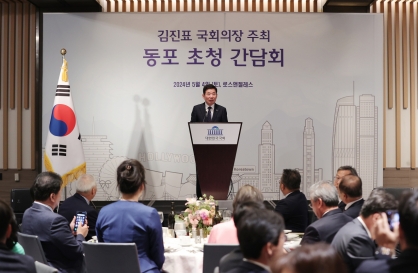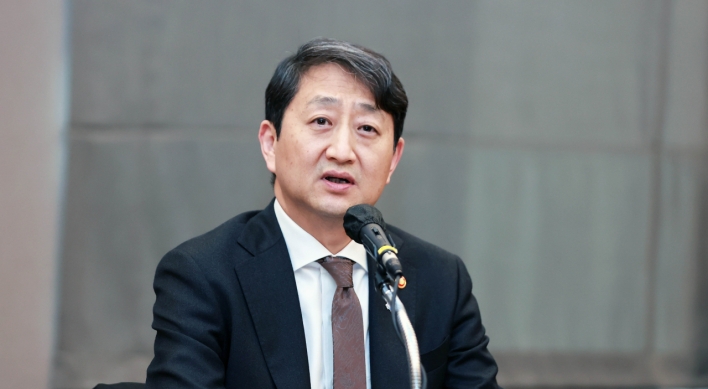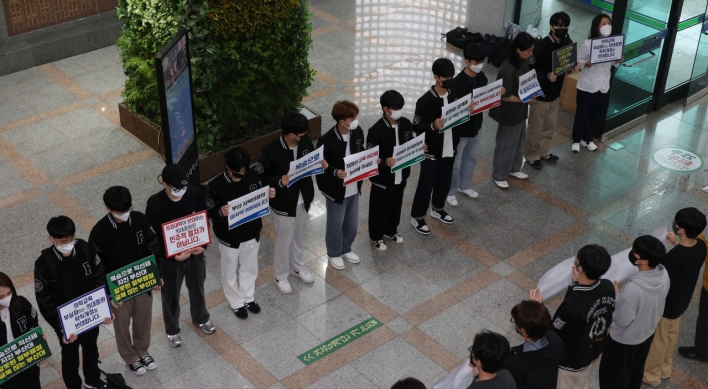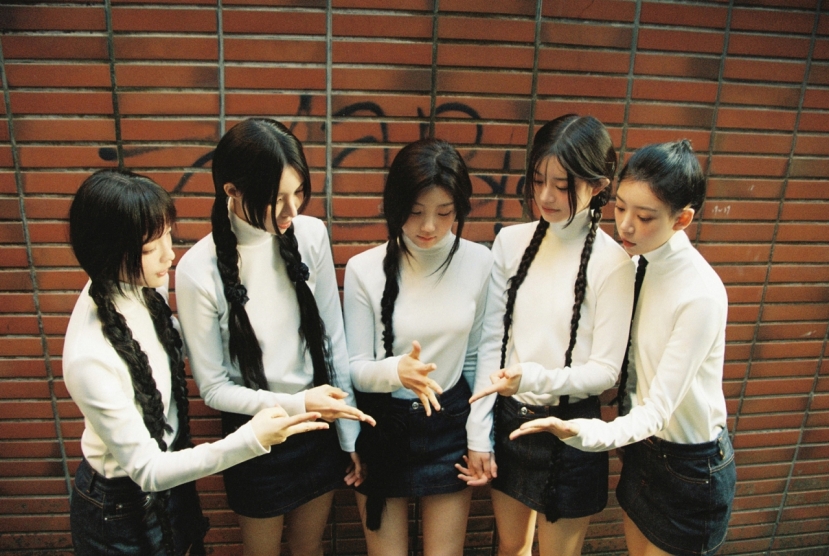The emergency leadership council of the ruling Grand National Party has taken a scalpel to the embattled party. In its inaugural meeting held on Tuesday, the council decided to deprive GNP lawmakers of an important prerogative ― immunity from arrest while the parliament is in session.
The council’s spokesman said the decision would become the party’s official policy if its 169 lawmakers endorse it at a general meeting. He said the council wanted to show the electorate that GNP lawmakers were ready to give up their privileges.
A constitutional provision gives lawmakers immunity from arrest or detention during the sessions of the National Assembly. But this privilege has been in dispute as legislators tended to abuse it to make groundless allegations or stonewall prosecutors’ investigations into the offenses they have committed.
The council’s move is in the right direction, given that the prerogative goes against the democratic principle that no one is above the law regardless of their profession. In this regard, other political parties need to follow suit. The less privileges lawmakers are granted, the less difficulty they will have getting in touch with their constituents.
The council has also agreed to press Rep. Choi Ku-sik to quit the party voluntarily as one of his aides was found to have been involved in a cyber attack on the website of the nation’s election watchdog in the Seoul mayoral by-election in October. Choi has denied any responsibility for the hacking scandal.
These were the major initiatives the council took on its first day in business. Mandated to reform the beleaguered party from the ground up, the council is under strong pressure to prescribe bitter reform pills for GNP lawmakers.
The tone for GNP reform was set by one of the 10 members of the council. Kim Jong-in, 71, a former Cheong Wa Dae secretary in economic affairs, flatly said: “As a political party, the GNP has already lost its reason for existence. What it needs now is ‘creative destruction.’”
Kim also stressed that “the GNP needs to change everything from its thinking and policy to party staff in order to adapt to the tides of change.”
The astute politician surprised many by joining the emergency council as he was known to be one of the mentors for Ahn Chul-soo, dean of the Seoul National University Graduate School of Convergence Science and Technology who has been ahead of Rep. Park Geun-hye, the GNP’s leading presidential hopeful, in recent public polls.
Kim was not the only surprise figure among the council members, who were all chosen by Park, the head of the interim leadership council. The list also included Lee Jun-seok, 26, a Harvard-educated venture firm CEO who launched a volunteer tutoring program for poor students.
The remaining members included professors who have vocally criticized President Lee Myung-bak’s signature projects, such as the restoration of the four rivers, and reform-minded young GNP lawmakers who called for dissolving the party.
The list shows Park took pains to staff the council with inside and outside figures who represented diverse views. It also suggests that she would begin to present policies on important issues that differ from those of President Lee. This may be inevitable, given that some of Lee’s policies contributed to making the electorate turn their backs on the GNP.
The emergency council has a long way to go to reform the ruling party “to the core,” as Park has promised. To restore public confidence, the party’s lawmakers should be willing to give up their vested interests and endure sacrifices for the sake of the nation. They also need to unite around the council and swallow the bitter medicine it prescribes.
The council’s spokesman said the decision would become the party’s official policy if its 169 lawmakers endorse it at a general meeting. He said the council wanted to show the electorate that GNP lawmakers were ready to give up their privileges.
A constitutional provision gives lawmakers immunity from arrest or detention during the sessions of the National Assembly. But this privilege has been in dispute as legislators tended to abuse it to make groundless allegations or stonewall prosecutors’ investigations into the offenses they have committed.
The council’s move is in the right direction, given that the prerogative goes against the democratic principle that no one is above the law regardless of their profession. In this regard, other political parties need to follow suit. The less privileges lawmakers are granted, the less difficulty they will have getting in touch with their constituents.
The council has also agreed to press Rep. Choi Ku-sik to quit the party voluntarily as one of his aides was found to have been involved in a cyber attack on the website of the nation’s election watchdog in the Seoul mayoral by-election in October. Choi has denied any responsibility for the hacking scandal.
These were the major initiatives the council took on its first day in business. Mandated to reform the beleaguered party from the ground up, the council is under strong pressure to prescribe bitter reform pills for GNP lawmakers.
The tone for GNP reform was set by one of the 10 members of the council. Kim Jong-in, 71, a former Cheong Wa Dae secretary in economic affairs, flatly said: “As a political party, the GNP has already lost its reason for existence. What it needs now is ‘creative destruction.’”
Kim also stressed that “the GNP needs to change everything from its thinking and policy to party staff in order to adapt to the tides of change.”
The astute politician surprised many by joining the emergency council as he was known to be one of the mentors for Ahn Chul-soo, dean of the Seoul National University Graduate School of Convergence Science and Technology who has been ahead of Rep. Park Geun-hye, the GNP’s leading presidential hopeful, in recent public polls.
Kim was not the only surprise figure among the council members, who were all chosen by Park, the head of the interim leadership council. The list also included Lee Jun-seok, 26, a Harvard-educated venture firm CEO who launched a volunteer tutoring program for poor students.
The remaining members included professors who have vocally criticized President Lee Myung-bak’s signature projects, such as the restoration of the four rivers, and reform-minded young GNP lawmakers who called for dissolving the party.
The list shows Park took pains to staff the council with inside and outside figures who represented diverse views. It also suggests that she would begin to present policies on important issues that differ from those of President Lee. This may be inevitable, given that some of Lee’s policies contributed to making the electorate turn their backs on the GNP.
The emergency council has a long way to go to reform the ruling party “to the core,” as Park has promised. To restore public confidence, the party’s lawmakers should be willing to give up their vested interests and endure sacrifices for the sake of the nation. They also need to unite around the council and swallow the bitter medicine it prescribes.







![[KH Explains] Can tech firms' AI alliances take on Nvidia?](http://res.heraldm.com/phpwas/restmb_idxmake.php?idx=644&simg=/content/image/2024/05/07/20240507050619_0.jpg&u=)


![[Grace Kao, Meera Choi] Has money displaced romance on dates?](http://res.heraldm.com/phpwas/restmb_idxmake.php?idx=644&simg=/content/image/2024/05/06/20240506050233_0.jpg&u=)







